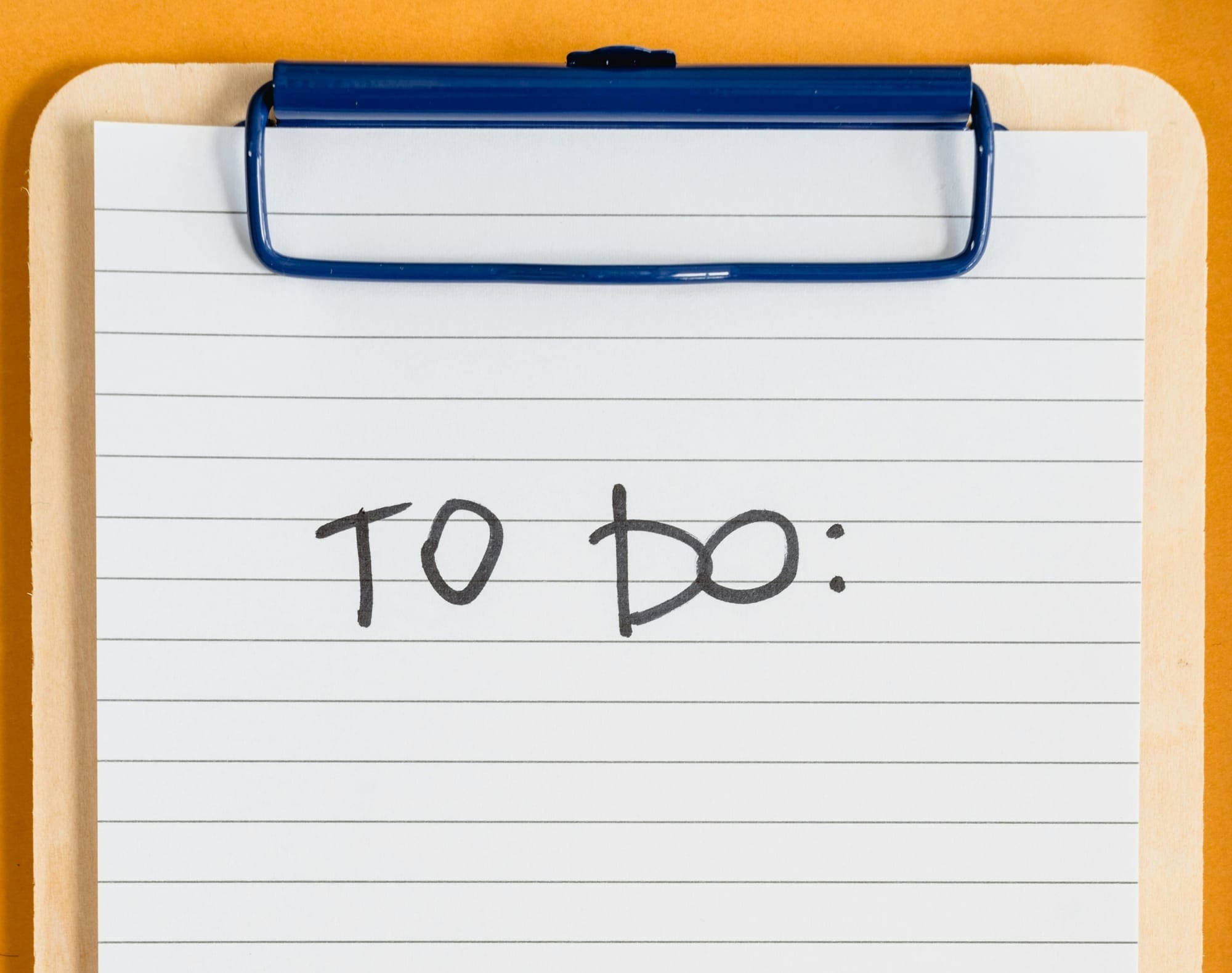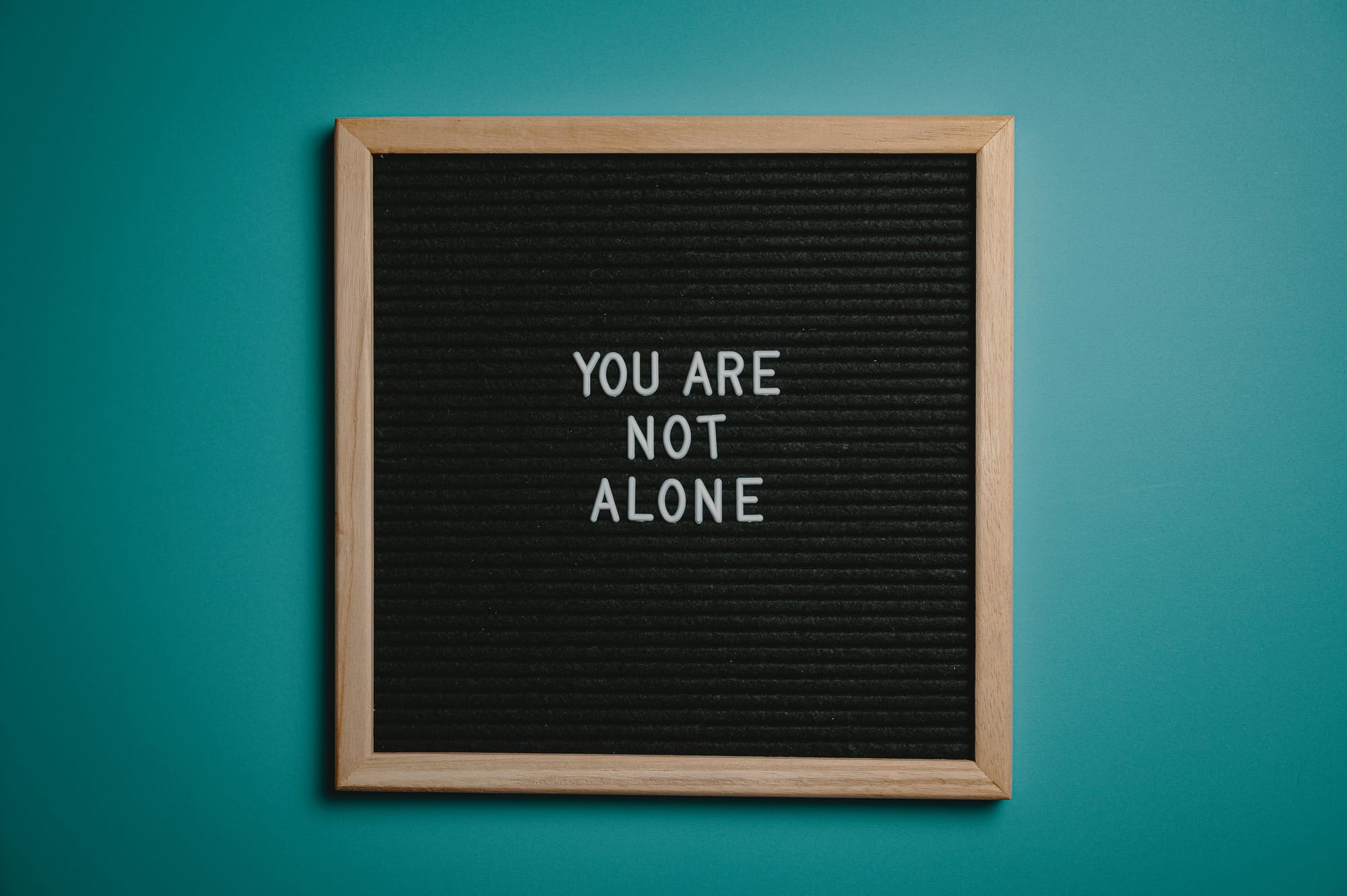Work-Life Balance: Finding Harmony Between Your Career and Personal Life

In today’s fast-paced world, finding a healthy work-life balance can seem out of reach. Many people juggle heavy workloads, family duties, and personal interests all at once. It’s no wonder that so many Americans now call themselves “super stressed.” When work takes over our personal lives, stress rises and our well-being declines. This ongoing stress can make it hard to focus, hurt relationships, and even lead to anxiety or depression. Over time, it can also weaken the immune system and, in severe cases, increase the risk of heart problems.
Finding the right work-life balance means ensuring that both your job and personal life receive the attention they need. This balance is not only possible, but it’s also important for your mental and physical health. When you make balance a priority, both you and your workplace benefit. In this article, you’ll find out why work-life balance matters, how to notice when things are off, and some simple ways to take back control of your time. A good balance lets you meet work commitments while still having time for yourself, your family, and your hobbies. When things are balanced, stress stays manageable, and you can be present both at work and at home. But if you work too many hours or bring work problems home, stress can quickly rise, and your mental health may suffer.
Why does work-life balance matter so much?
Chronic work stress is harmful, plain and simple. As stress levels increase, productivity tends to decrease. You may feel irritable, tired, or emotionally drained. This can hurt your relationships and lead to burnout. Recent surveys indicate that burnout is on the rise, with over half of employees reporting that they’ve felt burned out in the past year. One in three workers also says their mental health has suffered because of work demands. When our mental health takes a hit, our work often does too, creating a tough cycle to break.
Moreover, the physical health consequences are serious. The World Health Organization warns that consistently working very long hours (55+ hours per week) is associated with a 35% higher risk of stroke and a 17% higher risk of dying from heart disease. In other words, no job is worth damaging your health or risking your life. Maintaining balance is literally a lifesaver. As WHO’s Director, Dr. Tedros Adhanom Ghebreyesus bluntly put it, “No job is worth the risk of stroke or heart disease”.
The good news is that maintaining a healthy work-life balance yields tangible benefits. When people feel balanced and happy, they accomplish more, take fewer sick days, and are more likely to stay in their jobs. Companies that support a balance of work and personal life see better morale and lower turnover. In fact, businesses with good work-life balance have 25% less staff turnover and higher productivity. Balance isn’t just a nice extra. It’s important for long-term health and career success.

Signs and Consequences of Poor Work-Life Balance
It’s essential to recognize the signs that your work-life balance may be out of balance. Burnout is one of the clearest signs. Burnout isn’t just being tired; it’s a state of physical, mental, and emotional exhaustion from chronic work stress. Signs of burnout include feeling drained every day, becoming cynical or detached from your job, and a decline in performance or motivation. Sadly, burnout is becoming increasingly common, with approximately half of employees reporting feeling burned out in the last year due to their work. Workers who are burned out are also more likely to be seeking a new job or simply “checked out” at work, which can stall career progress and harm self-esteem.
Constant anxiety or mood changes can also signal an imbalance. If you’re always on edge about work, or you can’t enjoy downtime because you’re worrying about the next email, something needs to change. Some people may develop high-functioning anxiety; they appear to cope and even excel on the outside, but internally they’re in knots. For instance, you might meet all your deadlines and get praised for being dependable, yet privately, you’re overthinking every detail and fearing you’re not doing enough. This kind of quiet anxiety is common among high achievers. High-functioning anxiety can lead you to push yourself harder and harder, masking stress with productivity until you’re essentially running on fumes.
A poor work-life balance can also harm your relationships and home life. You might be with family or friends, but your mind is still on work. Maybe you’re answering emails at dinner or always checking your phone. Over time, this can make loved ones feel ignored. Stress from work can lead to irritability or a sense of detachment from those who matter most. In serious cases, long-term stress and imbalance can lead to depression, leaving you feeling hopeless or losing interest in things you once enjoyed.

Finally, consider the physical toll of imbalance. Chronic stress and overwork can lead to headaches, insomnia, digestive issues, or frequent illnesses as your immune system weakens. Overwork has even been linked with higher rates of heart disease and stroke, as noted earlier. If you’re getting sick more often or relying on caffeine and sugar to get through the day, it may be your body signaling that it’s overtaxed. In summary, a poor work-life balance can erode your energy, happiness, and overall well-being. The mental and physical warning signs are there to alert you that something needs to change.
Side note: A toxic work environment can significantly exacerbate the effects of poor work-life balance. For example, workplace bullying or “mobbing” , where someone is harassed or excluded by colleagues, creates extreme stress that destroys well-being. If you’re dealing with a toxic workplace or bullying, it’s essential to address the issue.
The Benefits of a Healthy Work-Life Balance
Building a better work-life balance isn’t just about avoiding problems. It brings real benefits to every part of your life. Your mental health improves when you set boundaries and make time to relax. You’ll feel less anxious, be in a better mood, and handle challenges more easily. People who feel balanced often report being happier and more satisfied with their lives. For example, a recent UK study found that employees who worked 32 hours a week (with no pay cut) felt less stressed and enjoyed better mental health. Balance helps you be your best self at work and at home.
There are also tangible career and workplace benefits to maintaining balance. It might sound counter-intuitive, but working less (in a sustainable way) can make you a more productive and creative worker. When you’re well-rested and not chronically stressed, you can concentrate better and think more clearly. You’re less likely to procrastinate or make mistakes. Companies increasingly recognize this; 85% of businesses that invest in work-life balance report increased productivity as a result. Balanced employees have more energy and motivation during work hours, which means they often get as much or more done in less time than overworked employees who stay late but accomplish little when exhausted.
A healthy balance also means fewer sick days and burnout-related absences, since employees are less stressed and their immune systems are stronger. This reliability can boost your professional reputation and opportunities. Furthermore, when you prioritize your personal life, you tend to be happier, and happy workers tend to have better relationships with colleagues and clients. This can lead to improved teamwork and networking, benefiting your career in the long run.
From the employer’s perspective, encouraging a work-life balance pays off in terms of retention and talent attraction. Workers today value balance highly; in some global surveys, employees rank work-life balance even above salary when choosing a job. Therefore, a company that promotes balance will attract and retain committed staff. Turnover drops when people feel their jobs are compatible with a healthy life; for example, organizations with good work-life balance policies see up to 25% less employee turnover. It’s a win-win: employees thrive and companies succeed. As Mental Health America succinctly puts it: when workers are balanced and happy, they’re more productive, take fewer sick days, and are more likely to stay loyal to their jobs.
Don’t forget the personal and family benefits of balance. When you make time for life outside of work, such as hobbies, exercise, socializing, or simply relaxing, you’re building a more fulfilling life. These activities aren’t just extras; they’re essential. Quality time with loved ones strengthens your relationships and boosts your mental health. You might even find new interests or reconnect with old ones, helping you feel more like yourself beyond your job. People who aren’t “all about work” often feel happier overall. Ultimately, a balanced life enables you to excel at work and genuinely enjoy your personal time.
Remember, finding balance is not just an individual task; your workplace culture matters too. If you’re in a leadership position or want to advocate for change at work, encourage policies that support balance, like flexible hours or mental health days. And if you ever feel alone in trying to improve your situation, help is available.

Common Challenges to Achieving Work-Life Balance
If work-life balance were easy, a lot fewer people would feel stressed or burned out. The truth is that there are many common challenges that make balance difficult in today’s world. By understanding these obstacles, you can start to tackle them:
Always-On Work Culture: Technology has blurred the line between work and personal life. Smartphones and laptops mean we’re often expected to be reachable or responsive even during off-hours. For instance, 62% of people admit they check work email outside of work hours. When the office follows you home on your phone, it can feel impossible to truly “clock out.” This always-on expectation can be implicit (your boss never says you must reply at night, but you feel you should) or explicit in high-pressure industries. Over time, this erodes personal time and adds constant low-level stress.
Heavy Workloads and Long Hours: Some professions simply demand more than a 40-hour work week, or companies may be understaffed, pushing employees to routinely work overtime. Nearly half of U.S. workers consider themselves “workaholics,” and about 1 in 4 say they never or rarely take days off. Economic pressures can also force people to take extra shifts or take on side jobs. Long hours directly eat into time that could be spent on rest or family. They also contribute to exhaustion, as noted, working consistently long weeks carries significant health risks. Despite this, some workplace cultures still glorify overwork, with “being busy” seen as a badge of honor.
Job Insecurity and Guilt: In tough job markets or unstable industries, employees may feel they must be constantly available or go above and beyond just to retain their jobs. Fear of layoffs or missing a promotion can lead to reluctance to set boundaries. You might think, “If I don’t answer this email tonight, I’ll look uncommitted.” Guilt and anxiety about work can thus push people to sacrifice personal time unnecessarily.
Perfectionism and Personal Drive: Sometimes, the pressure comes from within. Personal traits like perfectionism or high ambition can lead you to take on too much, making it difficult for you to say “no.” Approximately 33% of people who struggle with balance cite their own personal perfectionism as a root cause (feeling that they must give 110% at work). High achievers often set very high standards for themselves in both work and home roles, which can lead to overextending. If you pride yourself on being the go-to person or always doing things flawlessly, it’s easy to end up with an overwhelming schedule. Recognizing this tendency is key; you might be driving yourself harder than anyone is actually asking you to.
Family and Care-giving Responsibilities: Many people are balancing work with caring for children, elderly parents, or other family members. This can feel like two full-time jobs in itself. Without support, caregivers often sacrifice their own downtime to meet the needs of others. This challenge particularly affects work-life balance for working parents, single parents, or those with ill family members. Flexibility in work arrangements becomes critical here (like the ability to work remotely or adjust hours when needed).

Workplace Culture and Boss Expectations: Your immediate work environment has a huge influence. If your company or boss expects 24/7 dedication, doesn’t respect vacation time, or frowns upon leaving “on time,” you’ll struggle to keep boundaries. Some workplaces have a culture of late nights, weekend emails, or even “presenteeism” (where just being seen at work long hours is valued). In such environments, employees may fear that using benefits like parental leave or mental health days will label them as uncommitted. Changing a toxic or unsupported culture can be hard if you’re not in leadership, but sometimes even having an honest conversation with your manager about workload or flexibility can yield improvements. Encouragingly, more companies are realizing that healthier employees are also more productive; for example, 89% of HR professionals reported higher retention rates after implementing flexible work options.
Internalizing Stress: Some challenges are less external and more about how we manage our emotions. A pattern of overthinking or difficulty unplugging can sabotage attempts at relaxation. You might physically stop working, but mentally you’re still replaying the day or worrying about tomorrow. This mental carryover of work stress is a big barrier to true balance. Mindset plays a role, too. If you attach your self-worth entirely to your work performance, it’s hard to ever step away and do something purely for pleasure. Likewise, if you’ve fallen into the habit of using any free moment to “catch up on work,” you may feel uncomfortable when you actually have downtime. Breaking these thought patterns is tough but essential.
If you struggle with turning your mind off from work worries, learning how to stop overthinking can be a game-changer. Check out Aitherapy’s tips on overcoming overthinking to help regain peace of mind during your off hours.
Understanding these common challenges is the first step to overcoming them. Most people will face at least one of these hurdles while trying to find balance. Try not to be too hard on yourself. Notice what’s making things difficult, and then look for ways to address each issue. For example, if you’re always expected to be available, set a rule for yourself to stop checking email after a certain time and let your team know. If perfectionism is getting in the way, work on letting go of the need to be perfect in every task and focus on what really matters. If your workplace is the main issue and things don’t improve, it may be time to seek a more supportive environment for your own well-being.
On a personal note, those moments when you catch yourself thinking “Why am I like this? Why do I keep pushing myself so hard?” are actually opportunities. Instead of judging yourself, try to decode those feelings. Often, there are deeper reasons, such as fear of failure and learned habits, behind our workaholic behaviors.

Strategies to Improve Your Work-Life Balance
Achieving a better work-life balance requires genuine changes in both your mindset and daily habits. Here are some proven tips to help you regain control and establish a healthier balance. Start with one or two that fit your life, and add more as you go:
Set Boundaries with Work Time: Establish clear “stop” times for your workday and stick to them. If you’re prone to working late, establish a reasonable hour to log off (for example, no work emails after 7 PM) and clearly communicate this boundary to your colleagues. Consider turning off work-related notifications on your phone after hours. By drawing a line between work and personal time, you allow yourself to mentally disengage. It may feel uncomfortable at first, but remember that constantly being available is not sustainable in the long run.
Tip: If you work from home, try creating a ritual to signal the end of the workday, such as shutting down your computer and going for a short walk, to help transition into personal time.
Prioritize and Delegate: Not everything on your plate is equally important. Take a critical look at your tasks and identify what truly requires your attention versus what can be postponed, simplified, or delegated. You might find that some projects or meetings can be eliminated or streamlined. Learn to say “no” (or “not right now”) to additional commitments when you’re at capacity. This is hard, but crucial. Discuss with your manager if you feel your workload is consistently unmanageable; it’s in their interest for you not to burn out. By focusing on high-impact tasks and letting go of perfectionism on lower-priority items, you work more efficiently and free up time.
Remember the 80/20 rule: often 20% of your efforts produce 80% of the results, so concentrate your energy where it counts.
Utilize Time Management Techniques: Implementing effective time management strategies can help you maximize your working hours. For example, try the Pomodoro technique (work in focused 25-minute bursts with 5-minute breaks, and a longer break after a few cycles) to maintain concentration and avoid burnout during the day. Schedule “deep work” periods for important tasks and save routine emails or minor tasks for a designated block of time instead of constantly context-switching. Also, don’t be afraid to take breaks ,short breaks during work (a quick walk, stretching, or a breathing exercise) actually improve productivity and reduce stress. Working smarter, not longer, is key to leaving the office (or shutting the laptop) on time.
Unplug After Work: Make a conscious effort to disconnect from work during your off hours. This might mean setting an away message after hours or physically putting your work devices in a drawer. Fill that time with activities that engage you, such as cooking dinner with your family, reading, or hobbies you enjoy. When thoughts of work pop up (which they will, especially if you’re used to being always-on), gently remind yourself that you’ve done enough for today, and it can wait until tomorrow. Over time, this will get easier as your mind adapts to the new rhythm. Consider creating an end-of-day routine, like reviewing what you accomplished and writing tomorrow’s to-do list, then officially “signing off.” This signals to your brain that work is done and helps prevent ruminating about unfinished tasks at night.
Schedule Personal and Family Time: Treat your personal activities with the same respect as a work meeting. Schedule workouts, family dinners, outings with friends, or even just relaxation time on your calendar, and stick to those appointments. By time-blocking leisure and family commitments, you ensure they actually happen, and you give them priority. This might mean scheduling a hard stop at work to attend your child’s event or your weekly game night. Having something to look forward to can also motivate you to be more efficient during work hours. Remember, time off is not a luxury; it’s necessary for your mental health. People who take their vacation days and regular days off tend to be more productive and happier. So use that PTO, and don’t let guilt stop you from using the personal time you’ve earned.

Learn to Manage Overthinking and Stress: If your mind is constantly racing with work thoughts or worries, incorporate stress-management and mindfulness techniques into your day. Practicing mindfulness or meditation for a few minutes can help train your brain to stay present. Breathing exercises, journaling, or short walks outdoors during breaks can all reduce stress. When you notice anxious thoughts about work during your personal time, try to re-frame them in a more positive light. For example, instead of “If I don’t finish this project tonight, I’ll fail,” remind yourself, “I did a solid amount today; rest will help me be more effective tomorrow.” Challenge catastrophic thinking with realistic thinking. Some people find it useful to have a wind-down routine in the evening (like light stretching or reading) to quiet their mind before bed, especially if work stress has been interfering with sleep. If you find yourself stuck in a cycle of worry, consider exploring cognitive-behavioral techniques to break it.
Make Time for Self-Care and Health: Your health should be a non-negotiable priority. Ensure you are getting adequate sleep (most adults need 7-9 hours) as well as regular exercise, since physical activity is a proven stress reducer and mood booster. Exercise can be as simple as a 30-minute walk each day; it can clear your head and separate work from personal time. Pay attention to nutrition; eating balanced meals at regular times helps sustain energy better than skipping meals or relying on junk food. (Remember, 66% of workers report skipping meals due to work pressures, but this can worsen stress and health.)
Also, limit reliance on alcohol or caffeine as coping mechanisms; they can actually increase anxiety or disrupt sleep when overused. Scheduling routine medical check-ups and mental health check-ins is another part of self-care. When you care for your body and mind, you increase your resilience to stress and improve your ability to be present both at work and at home.
Nurture Your Relationships and Hobbies: Don’t neglect the activities and people that make you happy. Make it a point to spend time each week on hobbies or interests that have nothing to do with work ,whether it’s playing a sport, making art, gaming, or volunteering. These pursuits offer a sense of fulfillment and identity that extends beyond your job. Social support is equally critical: invest time in your relationships. Have regular date nights with your partner, play with your kids with full attention, meet up with friends, or call family members. Social connection is a powerful buffer against stress; laughter and companionship can put work problems into perspective. Plus, when you eventually look back on life, you’re more likely to cherish memories of loved ones and fun experiences than those extra hours spent at the office.
Give yourself permission to enjoy life now, not someday “when things calm down” (as that day may never come unless you make it happen).

Communicate and Seek Support: If you’re struggling with work-life balance, don’t suffer in silence. Talk to your boss about what you need, whether it’s clearer priorities, assistance with a heavy project, or flexible scheduling to accommodate personal responsibilities. Good employers would rather adjust expectations than lose a valued employee to burnout. Also, talk to your family about your work challenges; they may appreciate knowing what’s on your plate and can offer emotional support or help at home during busy times. Sometimes just voicing your difficulties out loud can lead to solutions or at least make you feel less alone. If stress has reached a level where it’s affecting your mental health significantly (e.g., constant anxiety, depression, or inability to function normally), consider reaching out to a mental health professional. Many organizations offer Employee Assistance Programs (EAPs) that provide counseling or referrals. Therapy or counseling can offer personalized strategies to help manage stress and establish healthy boundaries.
If traditional therapy seems hard to fit in, we are with you.
Trying these strategies can help you move toward a more balanced life. Remember, work-life balance isn’t a one-time fix; it’s something you keep working on as life changes. It’s normal to adjust your balance as your needs shift. The goal isn’t to split your time perfectly every day, but to feel good about how you spend your time and protect what matters most. Even small changes can make a difference. You might feel less stressed in the evenings or more refreshed at work after a real break. Celebrate those wins and continue to build on them.
Striving for work-life balance is a highly personal journey; what looks like “balance” for one person may be different for another. The key is finding the mix that allows you to be healthy, fulfilled, and effective in all important areas of your life. Remember that achieving balance doesn’t mean you’ll never be busy or stressed; it means those periods of busyness come in manageable waves, not as a constant flood. It means setting boundaries so that work does not consistently take precedence over everything else. Achieving work-life balance is absolutely attainable with conscious effort, and both you and your employer stand to gain from it. You’ll enjoy better mental and physical health, and your work performance may actually improve when you’re not running on empty.
If you notice that work is taking over your well-being, see it as a sign of courage to make a change,not a failure. Small steps, such as leaving work on time a few days a week or turning off your email during dinner, can lead to significant improvements in how you feel. Over time, you can set new boundaries that protect your personal life. Remember, your time is your life, and no one looks back wishing they had spent more of it at the office.
As you work toward better balance, be patient and kind to yourself. There will be setbacks, maybe a big project means longer hours, or old habits come back. That’s normal. Use these times as chances to learn and start fresh. Building a work-life balance takes time. Continue to connect with others, adjust your approach as needed, and ask for help when you need it. You deserve a life that leaves you feeling energized and fulfilled, not consumed by stress.
Remember, you are much more than your job. Work is just one part of your life. Make time for the other parts,being a friend, a parent, an artist, an adventurer, or simply a person who needs to rest. When you nurture these sides of yourself, you’ll bring more creativity and energy to your work, too. In the end, balancing your career and personal life isn’t just about avoiding burnout; it’s about making your whole life richer. Take a step, set a boundary, ask for help, or unplug this weekend. Your mind, body, and loved ones will thank you. The real success is a happier, healthier you.

References
- Mental Health America. (n.d.). Work Life Balance. Retrieved from MHA website mhanational.orgmhanational.org.
- World Health Organization & International Labour Organization. (2021, May 17). Long working hours increasing deaths from heart disease and stroke who.intwho.int. World Health Organization News Release.
- National Alliance on Mental Illness & Ipsos. (2024). The 2024 NAMI Workplace Mental Health Poll.https://www.nami.org/support-education/publications-reports/survey-reports/the-2024-nami-workplace-mental-health-poll/ NAMI Survey Report.
- Connolly, A. (2024, March 8). Work-Life Balance Statistics for 2024: A Global Perspective hubstaff.comhubstaff.com. Hub-staff Blog.
- Mental Health Foundation. (2025, August 12). New study shows 32-hour work week boosts staff well-being without harming productivity mentalhealth.org.uk. Mental Health Foundation News.
- Aitherapy. (2025, July 19). How AI Helps Decode the "Why Am I Like This?" Momentsblog.aitherapy.care. Aitherapy Blog.





